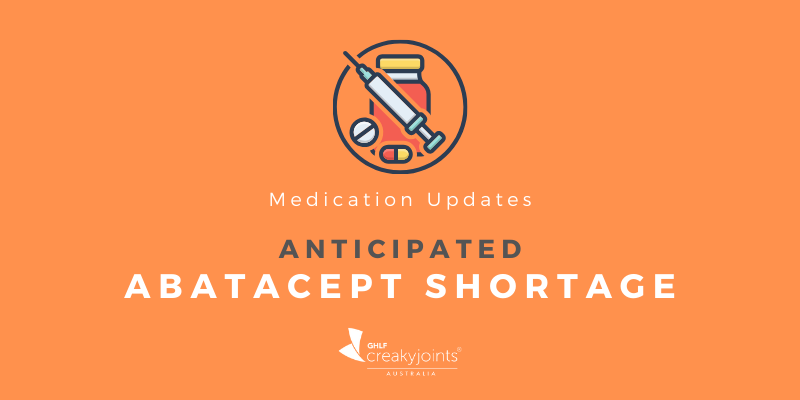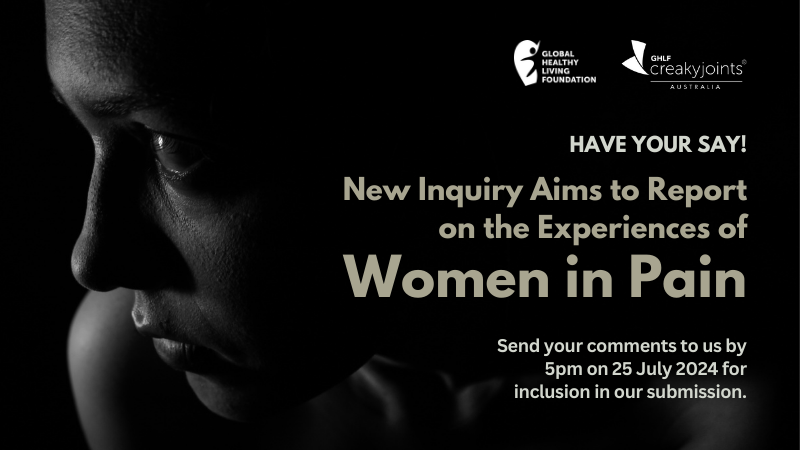Helpful Links
Australian Breastfeeding Association
Australian Government Department of Social Services: Families and Children
Australian Rheumatology Association: Medications and Pregnancy
Australian Rheumatology Association: Pregnancy Prescribing Information
CreakyJoints Australia: Government Support Information
CreakyJoints Australia: Health and Community Services Information
Family Planning Alliance Australia
Healthy Bones Australia: Pregnancy and Bone Health
Musculoskeletal Australia: Personal stories of mothers living with RA
National Disability Insurance Scheme
Occupational Therapy Australia
Pregnancy, Birth & Baby
Raising Children Network: Parent and Family Services
Trans Hub: Pregnancy
Non-binary Pregnancy and Parenting Support: Facebook group
Family Planning with Rheumatic Diseases
Is it possible to have a successful pregnancy if you have a rheumatic disease? Yes, but it is important to think ahead to plan or prevent pregnancy.
The peak reproductive years for people looking to carry a child are between 18 and 45 years. Yet these are also the years when people in this age group are more likely to develop a rheumatic disease, such as rheumatoid arthritis, psoriatic arthritis or ankylosing spondylitis.
Rheumatic diseases, and the treatments used to manage them, can impact fertility, pregnancy and the health of future children. Therefore, people of any gender with these conditions should be informed about these potential issues as soon as they are diagnosed or physically mature enough to become a biological parent. (Whichever occurs first.)
All prospective parents may also want to consider how their symptoms (such as pain or fatigue) could affect their ability to look after their child.
The good news is the availability of effective treatment options helps make successful pregnancies very possible for these parents. However, it is important to think well ahead to either plan or prevent pregnancy.

Building your support team before starting a family
Once you* have decided to start planning for a family you can start building your support team. This will include your healthcare team but may also include close family members or friends.
Your core healthcare team will ideally include your GP and rheumatologist along with your obstetrician/gynaecologist (ob/gyn). Your team may also include a physiotherapist, nurse, dietician, mental health professional or other specialists you normally see.
Before trying to conceive, prospective parents can meet with their treating doctors to screen for factors that may make conception more difficult or to identify medical conditions and medications or lifestyle factors that could impact pregnancy outcomes.
It is recommended that you see your rheumatologist about three to six months before you try to get pregnant to make sure your disease is under control. It is also important to tell your rheumatologist if the prospective biological father of the child is the one with the rheumatic condition and taking medication.
If you are already a participant of the National Disability Insurance Scheme (NDIS), ask your NDIS contact (usually a Local Area Coordinator) about additional supports you may be eligible for. For example, you might need advice from an occupational therapist about ways to physically feed your child. Or you might need specific aids and equipment to help you care for your child. If you are not an NDIS participant, you could consider applying for it before you plan to be pregnant.
Pregnancy and parenthood on their own are not grounds for applying for the NDIS. To be considered, your support requests need to be reasonable, necessary and relate to your disability and NDIS goals.
Contraception Consultation
If your rheumatologist advises you to wait to try to conceive until your body is clear of certain medications or your disease is in remission, you’ll need to know about contraception. Alternatively, you may have chosen to not have children (or, at least, not yet). There are many different options to prevent pregnancy. Your doctor can give you information about these options, and how they may work for you and your lifestyle or budget.
Don’t be ashamed to ask questions or be completely honest with your doctor about your sex life, or any concerns you have about contraception side effects or effectiveness. Ask any frank questions you have about how to properly use any form of contraception.
Stopping or Changing Medications and Other Drugs
Your rheumatologist and ob/gyn need to know all the prescription or over-the-counter products you are taking or have taken recently. That includes nutrition supplements, complementary therapies (such as herbal medicine) and medications you may take for reasons other than your arthritis.
Some treatments for rheumatic diseases (such as prednisolone) should not be ceased suddenly (especially if you have been on them for a substantial time). Others (such as methotrexate or leflunomide) may need to be stopped as soon as possible under medical supervision.
However, there are a range of treatments that can generally be used during pregnancy, such as hydroxychloroquine, sulphasalazine and TNFi inhibitors (a type of biologic treatment). Prednisolone and other corticosteroids should only be used when other medications do not control the condition or when the benefits outweigh the risks.
Staying on appropriate treatment allows you to keep your arthritis controlled in a way that may be safer for your baby. Keeping your arthritis under control is important since active inflammation can make it more difficult to conceive or increase the risk of negative pregnancy outcomes.
If you have an unplanned pregnancy while you or the child’s biological father are taking medications it is very important that you consult your rheumatologist straight away to discuss the appropriate next steps.
What About Recreational Drugs Such as Marijuana, Cocaine or Others?
Early in your pregnancy, your doctor will likely ask you about any recreational drugs (such as tobacco or alcohol) and other substances that you have taken including drugs that are not legal. The care they give you should be based on respect and non-judgemental attitudes.
While only you can decide what to tell your doctor, be aware that taking such drugs can put your baby’s health at risk. This is a controversial issue for many parents, who may not want to tell their doctor that they use illegal drugs out of fear of legal repercussions. However, your doctor is required to keep the details of your visit confidential.
Prenatal Care
Your rheumatologist will supervise any medication changes you make before or at the beginning of your pregnancy. Your GP or ob/gyn can also advise you on prenatal vitamins or supplements you should take, such as folic acid, and ensure that your immunisations are up to date.
Your rheumatologist and ob/gyn can both advise you on any changes you should make to your diet, your exercise or physical activity routine, weight management and other lifestyle factors. It’s important to stay active during your pregnancy, including range-of-motion exercises to keep your joints flexible.
Disclaimer: This information should never replace the information and advice from your treating doctors. It is meant to inform the discussion that you have with healthcare professionals, as well as others who play a role in your care and well-being.
*In this article, the terms “you” and “your” refer to pregnant people and their partners (if applicable).
Alcohol and Drug Foundation: Can I talk to my doctor about my alcohol or other drug use?: https://adf.org.au/talking-about-drugs/having-conversation/talk-to-doctor-aod-use/
Australian Government Department of Health and Aged Care: Pregnancy Care Guidelines – Substance use https://www.health.gov.au/resources/pregnancy-care-guidelines/part-c-lifestyle-considerations/substance-use
Australian Rheumatology Association: Rheumatology Fertility Preservation Practice Recommendations https://rheumatology.org.au/Portals/2/Documents/Public/Professionals/ARA%20Fertility%20Preservation%20Practice%20Recommendations%20_final.pdf?ver=2022-08-29-161730-307
Better Health Channel: Pregnancy – medication, drugs and alcohol https://www.betterhealth.vic.gov.au/health/healthyliving/pregnancy-medication-drugs-and-alcohol
Healthy Bones Australia: Pregnancy and Bone Health https://healthybonesaustralia.org.au/wp-content/uploads/2022/10/hba-fact-sheet-pregnancy.pdf
Hello Postpartum: Using Gender Inclusive Language in Pregnancy and Postpartum https://hellopostpartum.com/gender-inclusive-language-pregnancy-postpartum/
Tanaka, Y., Barrett, C., Hirano, Y. et al. Management of chronic rheumatic diseases in women 18–45 years of age in Asia Pacific: insights from patient and clinician surveys. Rheumatol Int (2022). https://doi.org/10.1007/s00296-022-05206-0








